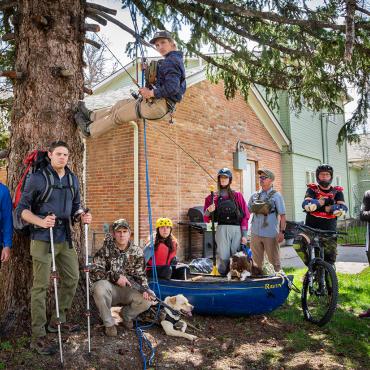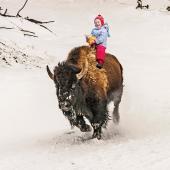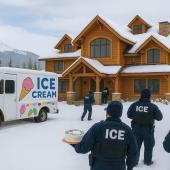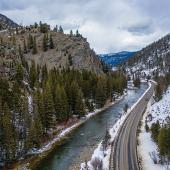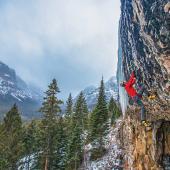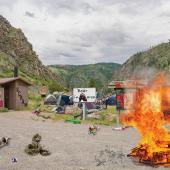Growing Up Gallatin
And fearing change.
Five generations is a long time for one family to be in one place—growing up, I had to be careful to not date my cousin. My mom’s family homesteaded in the late 1800s in a one-room log cabin at the north end of what would become Gallatin County. It was a rough but breathtaking spot. Thirteen children were born in that cabin, one of which was my great-grandmother, Evaline. She married Oscar Callantine and they had my grandmother. My mom was raised in the same area up what we call Pass Creek.
Ivan Doig describes this place at the beginning of This House of Sky: “The single sound is hidden water—the south fork of Sixteenmile Creek diving down its willow-masked gulch. The stream flees north through this secret and peopleless land until, under the fir-dark flanks of Hatfield Mountain, a bow of meadow makes the riffled water curl wide to the west.”
MY family was among the few people in this peopleless land and the water of Sixteenmile creek carried them, generation by generation. My mother’s family depended upon the land to survive, and I believe this close relationship stayed in our blood. In familiar places I notice every hill, every change of light. I could be dropped anywhere north of Bozeman and find my way out.
A desire for the past also comes with this connection. When I look at a place I want to know what it looked like 100 years ago. Whenever I drive north of Bozeman, I feel a sense of nostalgia that will stick with me for days afterward. This feeling always reminds me that this place we now consider Gallatin County is solely responsible for the current existence of my family. It fed them and challenged them. Our harsh winters brought them to their knees and our gorgeous Indian summers rejuvenated their minds.
The current challenges facing Gallatin County are amplified for myself and my family because of our history. The development I have seen in my lifetime in Gallatin County has been astounding. I’m shocked and saddened by it but my feelings can’t compare to the emotion I see in my family. Driving through subdivisions with my mom, I can see the worry and dismay on her face. She’ll point out old hayfields and explain that what we now consider to be “town” was part of a certain family’s ranch. Seeing concrete encroaching upon a place that fed your family is threatening and depressing.
I often find myself becoming extremely cynical about the counterintuitive oxymoron of a West we have created. People want open space so they move into open space and in doing so, effectively eliminate that space. Change is hard, and being closed-minded isn’t good for anyone. I understand how tiring it is to listen to someone rattle on about the “old days.” But when I listen to political candidates talk about jobs and growth, I cringe. When I think 50 years down the road, I harbor an intense fear that the wrong person will get their hands on the land my family was born from. Some things never change for a reason.


